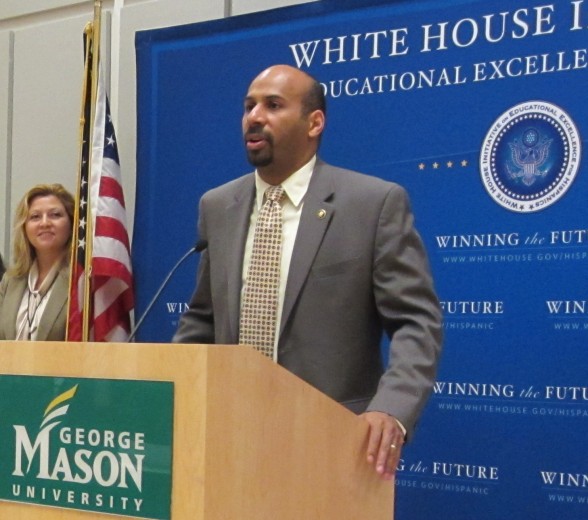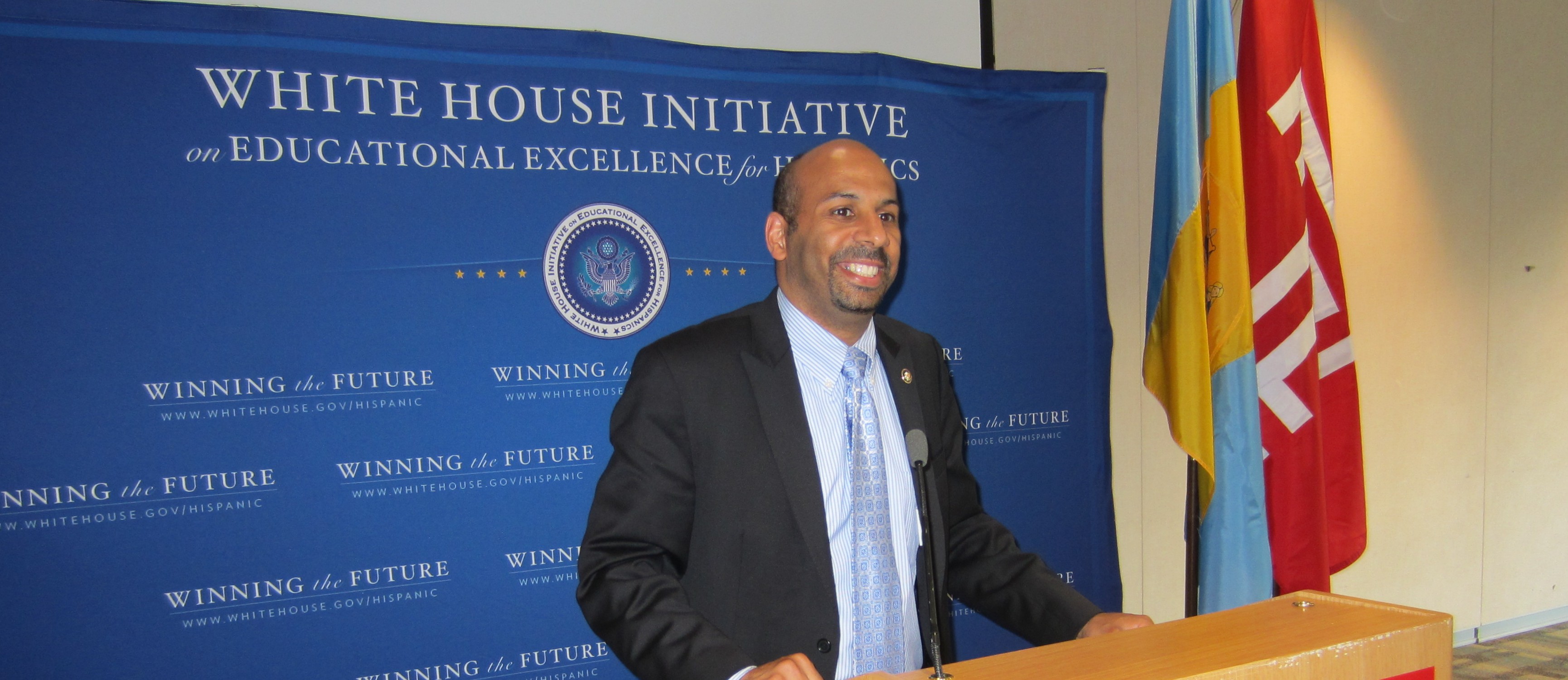The chance to work in Washington at the behest of the President is a dream some spend their entire lives planning, right from their first internship. Marco Davis, the Deputy Director of the White House’s Initiative on Educational Excellence for Hispanics, readily admits that he is not one of those people. His career evolved from taking advantage of unscripted opportunities rather than precisely choreographed moves.
However, one constant runs through his journey. From his first job as a high school counselor at the New York-based leadership development program Prep for Prep to his current role, Davis has always believed that the world works best when you position young people to not just learn, but to lead. “There is a tremendous amount of talent, intellect, creativity and optimism within young people that is all too often not tapped into,” said Davis. “It is not allowed to grow early enough, that is not noticed or supported by various systems and infrastructures in society.”
Davis has spent his life nurturing that talent in communities of color at home and abroad. In his decade plus time at the National Council of La Raza, he designed and established the organization’s Center for Emerging Latino Leadership, its annual weeklong Líderes Summit, and various other activities that to this day help financially, academically and emotionally support first generation Latino students.
Yet, that was just the beginning. His achievements there caught the eye of Ashoka Youth Ventures, the non-profit arm of the globally based community of leading social entrepreneurs. As Regional Director for the U.S. Mid-Atlantic U.S. and later all of Latin America, Davis oversaw staff and volunteer efforts that provided more than 900 youth teams with the inspiration tools, and financial support experience to lead their own transformative social ventures. That is, until leadership at the U.S. Department of Education recruited him to help carry out President Obama’s efforts to improve the academic achievement of Latino students. “I have been lucky enough that people who do similar work have reached out to me about opportunities,” said Davis. “Having been around this field, the Latino community, and having done work in the general broadest sense of education, the Initiative reached out and realized that I might be a good candidate.”
Davis and his two older sisters grew up in the Mt. Vernon section of New York City as the children of Jamaican and Mexican parents who instilled a strong sense of community service in their children as well as the belief that they had a responsibility to support and engage their neighbors. “[My parents] always had this sense of contributing to the community that they were apart of, or where they came from, whether it was my dad at his job or my mom with her volunteer work,” said Davis.
“As much as I didn’t know which was going to be my next job or what exactly was going to be my contribution to the world, I knew that I wanted to serve young people, that I wanted to serve the Latino community and that I wanted to find ways to do that effectively.”
What’s important, says the 41-year old father and husband, is that you earn a reputation of success in the very same thing that you love to do the most. Davis believes that society gives us a chance to do that early and often. “A former boss at Ashoka put it this way: it’s as simple as believing in young people and giving them the encouragement, support, structure and responsibility of making their own decisions,” said Davis. “Obviously, depending on the person and age group, some will need more guidance than others. But it’s about helping them figure out the process for decision-making and then giving them the opportunities to make those decisions themselves.” So what does the maker of leaders believe are some keys for success?
Do What You Love: “It can’t be said enough. Find the stuff that moves you, that inspires passion in you that gets you up in the morning. That is what I find will make the biggest difference, as opposed to what you think you are supposed to do or what you think will make the most money or is going to give you the most power or success.”
Get Good at What You Love: “It’s not just, ‘work hard no matter what’ but work hard to be very, very good. Because if you can be very good at something, then you are going to be a resource. If you get very good at something, then it will be easier to demonstrate that to people or for people to notice. And if you can get good at more than one thing, then people will realize that you are really talented.”
Don’t Labor in the Dark Forever: “There’s a strong piece of our work ethic — “la humilidad” — that says ‘I am just here to serve, I am just part of the team, I just want to serve the greater good.’ That’s an absolutely great quality to have. But working so hard and so quietly that people don’t notice that you are doing a good job can work to your disadvantage in American society. So find a way to get your truly legitimate hard work, success and results recognized.”
Images courtesy of subject


